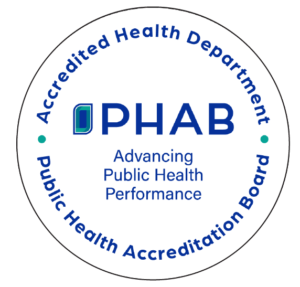Why should I use insect repellent?
Insect repellents can lower your chances of getting bitten by mosquitoes, which carry viruses such as West Nile virus (WNV) that can cause illness and even death.
When should I use insect repellent?
Use repellent when you are going to be outdoors. Even if you do not see mosquitoes, there is a good chance that they are around. Many of the mosquitoes that carry WNV bite between sunset and sunrise. If you are outdoors around these times of the day, it is especially important to use repellent. In many parts of the country, there are mosquitoes that also bite during the day, and some of these mosquitoes have also been found to carry WNV.
How often should insect repellent be re-applied?
Always follow the directions on the product label you are using. In general you should re-apply repellent if you are being bitten by mosquitoes. Sweating, perspiration or getting wet may mean that you need to re-apply repellent more frequently. Repellents that have a higher concentration (higher percentage) of active ingredient tend to protect longer.
How does insect repellent work?
Female mosquitoes bite people and animals because they need the protein found in blood to help develop their eggs. Mosquitoes are attracted to people by skin odors and carbon dioxide from breath. The active ingredients in repellents make the person unattractive for feeding. Repellents do not kill mosquitoes. Repellents work only at short distances from the treated surface, so you may still see mosquitoes flying nearby.
Which mosquito repellents work best?
The US Centers for Disease Control (CDC) recommends using products that have been shown to work in scientific studies and that have active ingredients which have been registered with the US Environmental Protection Agency (EPA). CDC believes that repellents with DEET (N,N-diethyl-m-toluamide) and Picaridin (KBR 3023) give the longer protection than other repellents.
What percentage of DEET or Picaridin should an insect repellent have?
In general, the more active ingredient (DEET or Picaridin) a product has, the longer it protects from mosquito bites. The percentage of different active ingredients cannot be directly compared: 10% DEET does not work the same as 10% Picaridin. One study done in 2002 showed that:
• A product with 23.8% DEET gave an average of 5 hours of protection from mosquito bites;
• A product with 20% DEET gave almost 4 hours of protection; and
• A product with 6.65% DEET gave almost 2 hours of protection.
What is permethrin?
Permethrin is a chemical that is that is registered with EPA and used on clothing, shoes, bed nets, and camping gear. Permethrin-treated clothing repels and kills ticks, mosquitoes, and other insects, even after washing the clothing several times. Permethrin insecticide should be reapplied following the label instructions.
How can I use insect repellents safely:
- Use the repellent according to the instructions on the label.
- Use enough repellent to cover exposed skin and clothing. Do not put repellent on skin that is under clothing.
- Do not put repellent on cuts, wounds, or irritated skin.
- After coming back indoors, bathe or wash treated skin with soap and water. (Check the label for specific directions.)
- Do not spray aerosol or pump products in enclosed areas.
- Do not spray aerosol or pump products directly to your face. Spray your hands and then rub them carefully over the face, avoiding eyes and mouth.
How do I know if I’m allergic to an insect repellent?
Repellents may cause skin reactions in rare cases. Most insect repellents can cause eye irritation if the product gets in the eye. If you think you are allergic to a product, stop using it, wash the treated skin, and call a poison control center. If the product gets in the eyes, flush them with clean water and call your doctor or poison control center. If you go to a doctor, take the product with you.
Can insect repellents be used on children?
The American Academy of Pediatrics (AAP) recommends that insect repellents with 10% DEET seem to be as safe as repellents with 30% DEET if you follow the directions on the product labels. AAP does not yet have an opinion on picaridin or oil of lemon eucalyptus for children. Also, keep in mind the following when using a repellent on a child:
- Do not let young children put insect repellent on themselves. Put the repellent on your own hands and then rub it on your child. Do not touch your child’s eyes or mouth and use only a little bit around their ears.
- Do not put repellent on children’s hands, as they tend to put their hands in their mouths.
- Keep repellents out of reach of children.
- Do not put repellent on under clothing. If repellent is put on clothing, wash it before wearing it again. (Check label for specific instructions.)
Can insect repellents be used on pregnant or nursing women?
EPA does not give any additional precautions for using registered repellents on pregnant or nursing women. You should call your doctor for more information.
Can I use an insect repellent and a sunscreen product at the same time? Are combination sunscreen/insect repellent products good to use?
You should use both a sunscreen and an insect repellent when they are outdoors. Follow the instructions on the package for proper application of each product. In general, you should apply sunscreen first, then repellent.
It is NOT recommended to use a single product that is both a DEET insect repellent and sunscreen because the instructions for insect repellents and sunscreen are different. Usually, DEET insect repellent does not need to be reapplied as often as sunscreen. There are no recommendations for products that combine other active ingredients and sunscreen. Always follow the label on whatever product you are using.

